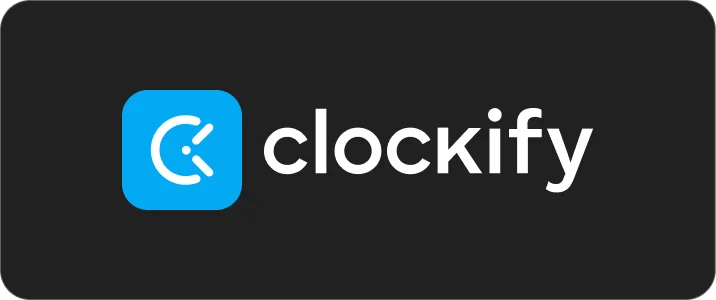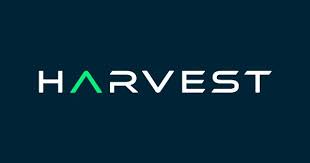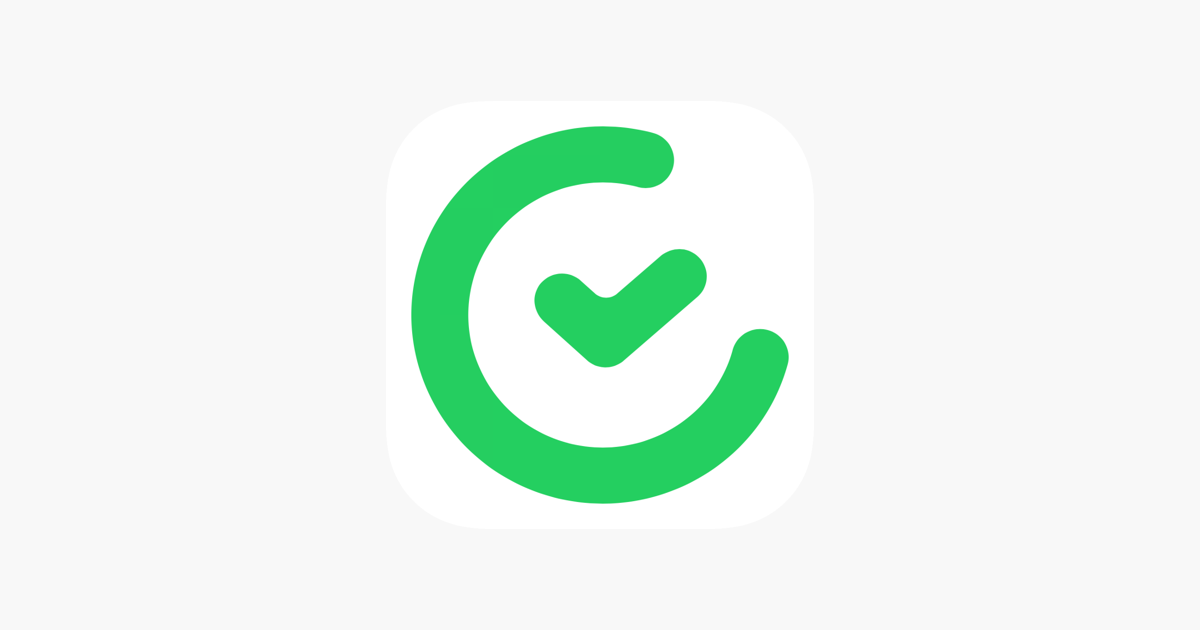
Back to hub
Blog
The 7 Best Time Tracking Apps to Skyrocket Your Productivity (and Sanity!)
Published on May 21, 2025Updated on Jul 31, 2025
Ever feel like time just… disappears? One minute you're sipping your morning coffee, ready to conquer the world, and the next, it's 5 PM, your to-do list looks suspiciously like it did at 9 AM, and you're wondering where all those precious hours went. If this sounds familiar, you're not alone. It's like time is a sneaky little gremlin, gobbling up your minutes when you're not looking! But what if you could shine a spotlight on that gremlin? That's where a 7 best time tracking app(or seven!) comes in.
In today's hyper-productive (or at least, hyper-busy) world, knowing where your time goes isn't just a nice-to-have; it's essential. Whether you're a freelancer juggling multiple clients, a small business owner wearing all the hats, or part of a team aiming for peak efficiency, a solid time tracking appcan be a game-changer. It's like having a personal auditor for your workday, but way less intimidating and much more helpful.
We've dived deep, sifted through the options, and emerged with the cream of the crop – the solutions that will help you bill accurately, manage projects effectively, and, most importantly, understand your own work habits. So, grab another coffee (you'll have time for it now!), and let's explore the 7 best time tracking appcontenders that can transform your relationship with time.
Why Bother with a Time Tracking App Anyway?
Before we jump into our top picks, let's quickly cover whyyou'd even want to meticulously log your hours. It's not about micromanagement (especially if it's just for yourself!). It's about:
Accurate Billing:For freelancers and agencies, this is a no-brainer. No more guesstimates, just precise invoicing.
Project Profitability:Understand which projects are lucrative and which are time-sinks.
Improved Focus:Knowing you're "on the clock" can surprisingly boost concentration.
Identifying Bottlenecks:See where time is reallyspent versus where you thinkit's spent.
Better Estimations:The more you track, the better you get at estimating future tasks.
Team Management (for some apps):Keep projects on track and manage resources effectively.
Boosting Personal Productivity:Honestly, sometimes seeing that 3 hours went to "checking emails" is the wake-up call we all need. Once you reclaim that time, you can focus on what truly matters, like strategic B2B outreachor refining your cold emailstrategy if you're in sales. Platforms like Emelia.iocan help you make the most of that reclaimed time by streamlining your outreach efforts.
(Infographic Idea: A circle chart showing the benefits of time tracking: Accurate Billing, Better Focus, Project Insights, Improved Estimates, Increased Productivity)
The Contenders: Our Top 7 Time Tracking Apps
Alright, let the countdown (or rather, detailed exposition) begin! We've selected these apps based on their features, ease of use, integrations, and overall value.
1. Toggl Track: The Simplicity King

Toggl Track is often the first name that pops up, and for good reason. It's incredibly user-friendly and focuses on making time tracking as frictionless as possible.
What we love:
One-click time tracking:Seriously, it's that easy.
Cross-platform availability:Desktop, web, mobile, browser extensions – track time anywhere.
Simple reporting:Easy-to-understand reports that give you a clear overview.
Pomodoro timer:Built-in for those who love focused work sprints.
Generous free plan for up to 5 users.
Things to consider:
Advanced features are behind a paywall.
Some might find it too simple if they need robust project management features.
Best for:Freelancers, small teams, and anyone who values simplicity and just wants to get the tracking done.
Pricing:Free plan available; paid plans start around $10/user/month.
Think of Toggl Track as that minimalist, super-efficient colleague who just gets things done without any fuss.
2. Clockify: The "Seriously Free" Powerhouse

Clockify burst onto the scene offering an unbelievable amount of functionality for free. Yes, unlimited users, unlimited projects, unlimited tracking – all for $0.
What we love:
Insanely generous free plan:It covers most needs for many businesses.
Versatile tracking options:Timer, manual entry, timesheets.
Team management features:Track time for your entire team, set hourly rates, and manage projects.
Reporting:Customizable reports to slice and dice your data.
Self-hosted option:For those with specific data privacy needs.
Things to consider:
The interface, while functional, can feel a bit more utilitarian than some competitors.
Paid plans add extra features like time off, invoicing, and targets.
Best for:Teams of any size (especially those on a budget), freelancers, and anyone who needs robust features without the price tag.
Pricing:Amazing free plan; paid plans for extra features start at a very reasonable $4.99/user/month.
Clockify is like finding a twenty-dollar bill in an old coat pocket, but it's a full-featured software suite. What a steal!
3. Harvest: The Invoice & Expense Guru

Harvest has been a long-standing favorite, particularly for those who need seamless invoicing and expense trackingbuilt right into their time tracking workflow.
What we love:
Integrated invoicing:Create and send invoices directly from your tracked time.
Expense tracking:Keep project costs in check.
Robust integrations:Connects with popular accounting, project management, and payment tools.
Team-focused:Good for managing team capacity and project budgets.
Detailed project reporting:Provides excellent insights into project health.
Things to consider:
The free plan is quite limited (1 person, 2 projects).
Can be pricier than some alternatives for larger teams.
Best for:Freelancers, agencies, and consultancies that need strong invoicing and project budget management.
Pricing:Free plan available; paid plans start at $12/user/month.
If your time tracking needs to flow directly into getting paid, Harvest is your trusty financial sidekick.
4. TimeCamp: The Automatic All-Rounder

TimeCamp offers a great balance of automatic time tracking, productivity analysis, and project management features, making it a strong contender for teams.
What we love:
Automatic time tracking:Tracks computer usage and assigns it to projects based on keywords.
Productivity tracking:See how much time is spent on productive versus unproductive apps and websites.
Attendance tracking:Useful for managing employee attendance and time off.
Customizable reports and invoicing.
Good range of integrations.
Things to consider:
The interface can take a little getting used to.
The sheer number of features might be overwhelming for solo users with simple needs.
Best for:Teams looking for detailed productivity insights, automatic tracking, and attendance features.
Pricing:Free plan for one user; paid plans start around $3.99/user/month (billed annually for Basic).
TimeCamp is like that super-organized friend who not only knows where their time goes but also helps you figure out yours, automatically!
5. RescueTime: The Productivity Coach

RescueTime takes a slightly different approach. It's less about billing clients and more about understanding and improving your personal and team productivity by minimizing distractions.
What we love:
Automatic and detailed tracking:Categorizes your computer and website usage automatically.
Focus Sessions:Helps you block distracting websites.
Goal setting:Set goals for how you want to spend your time.
Weekly reports:Get insights into your productivity trends.
Excellent for identifying time-wasting habits.
Things to consider:
Not primarily designed for project billing or invoicing (though it can help inform it).
Best for individual or team productivity improvement rather than client-facing time logging.
Best for:Individuals and teams serious about improving focus, reducing distractions, and understanding their digital habits.
Pricing:Offers a free "Lite" plan; premium plans start around $12/month.
Think of RescueTime as your digital wellness coach, gently nudging you towards more focused and productive work. It ensures you have the bandwidth for critical growth activities – for instance, if you’re in B2B, more time for prospecting or finding contact information for leads, tasks that are crucial before even thinking about outreach.
6. Hubstaff: The Field & Remote Team Specialist

Hubstaff is a powerful option, particularly for businesses with remote or field-based teams, offering features like GPS tracking and employee monitoring (use ethically!).
What we love:
GPS tracking and geofencing:Ideal for mobile teams.
Optional screenshots and activity monitoring:Provides proof of work (can be controversial, so use with transparency).
Payroll and invoicing features.
Project budgeting and scheduling.
Robust reporting.
Things to consider:
Employee monitoring features can be a concern for privacy if not implemented transparently.
Might be overkill for freelancers or small teams not needing these specific features.
Best for:Businesses with remote employees, field services, or those requiring detailed work monitoring.
Pricing:Free plan for one user; paid plans start at $7/user/month.
Hubstaff is the supervisor who knows where everyone is and what they're working on, ideal for managing distributed teams effectively.
7. MyHours: Simple, Yet Effective Team Tracking

MyHours strikes a good balance between simplicity for individual users and necessary features for team-based project tracking and billing.
What we love:
Generous free plan:Free for unlimited team members with core tracking and project billing.
Easy-to-use interface:Clean and intuitive.
Project budget tracking:Set budgets and get alerts.
Professional invoicing:Create and send invoices.
Detailed timesheet reports.
Things to consider:
Fewer integrations compared to some larger platforms.
Advanced features like labor cost calculation are in paid plans.
Best for:Freelancers and teams looking for a straightforward, free or affordable solution for project time tracking and billing.
Pricing:Excellent free plan; Pro plan starts at $9/user/month.
MyHours is like that dependable multi-tool – it might not have every single bell and whistle, but it has all the essential functions you need to get the job done efficiently.
Choosing Your Champion: What to Look For in a Time Tracking App
App Name | Best For | Key Feature(s) | Free Plan | Starting Price (Paid) |
|---|---|---|---|---|
Toggl Track | Freelancers, small teams, simplicity seekers | One-click tracking, Pomodoro timer | Yes | ~$10/user/month |
Clockify | Teams on a budget, freelancers needing robust free features | Extremely generous free plan, versatile tracking | Yes | ~$4.99/user/month |
Harvest | Freelancers, agencies needing strong invoicing & expense tracking | Integrated invoicing, expense tracking | Yes (Ltd) | $12/user/month |
TimeCamp | Teams needing automatic tracking & productivity analysis | Automatic time tracking, productivity insights | Yes (1user) | ~$3.99/user/month |
RescueTime | Individuals & teams focusing on productivity & distraction reduction | Automatic habit tracking, focus sessions | Yes (Lite) | ~$12/month |
Hubstaff | Businesses with remote/field teams, needing monitoring | GPS tracking, optional screenshots, payroll | Yes (1user) | $7/user/month |
MyHours | Freelancers & teams needing simple project tracking & billing | Generous free plan, project budget tracking | Yes | $9/user/month |
When deciding on the best time tracking appfor you, consider these factors:
Your Primary Goal:Is it for billing, project management, personal productivity, or team oversight?
Ease of Use:If it's clunky, you won't use it. Simplicity is key.
Features:Do you need invoicing, expense tracking, automatic tracking, or integrations?
Team vs. Solo:Solo users have different needs than managers of large teams.
Budget:From free to premium, there's an option for every wallet.
Integrations:Does it play nice with the other tools you use (e.g., project management, accounting, calendar)? Think about your whole workflow. For instance, if efficient time management allows your sales team to spend more time on crafting targeted B2B outreach, you'll want tools that support that. Perhaps not a direct integration, but understanding how one tool frees up time for another, like Emelia.iofor streamlining LinkedIn outreachand finding email addresses, is crucial.
It's like picking a car. A sports car is fun, but not practical for a family of five. A minivan is practical, but maybe not what a solo adventurer needs. Choose the vehicle that fits yourjourney.
Making Time Tracking a Habit, Not a Chore
Okay, you've picked your app. Now what? The biggest challenge is actually usingit consistently. Here are a few tips:
Start Simple:Don't try to track every tiny detail from day one.
Integrate it into Your Routine:Start the timer when you start a task, stop it when you finish or switch.
Use Browser Extensions/Desktop Apps:Make it easily accessible.
Be Honest:No one's judging (unless you have a boss who is, then maybe be a bit more diligent!). The data is for your benefit.
Review Regularly:Look at your reports weekly. What insights can you gain? Where can you optimize? Perhaps you'll find you have more time than you thought for important lead generation activities like extracting data from LinkedIn Sales Navigator– a task that requires focused effort.
Don't Aim for Perfection:Missed a day? It's okay. Just get back on track.
Time tracking isn't about adding another task to your plate; it's about making every hour count. It’s about transforming time from a mysterious void into a quantifiable asset.
Conclusion: Take Back Your Time!
The quest for the 7 best time tracking app(or your personal best) is really a quest for more control, clarity, and ultimately, freedom. By understanding where your hours go, you can make smarter decisions, price your services accurately, boost your team's efficiency, and carve out more time for what truly matters – whether that's growing your business, learning a new skill, or just enjoying a well-deserved break.
So, pick an app from our list, give it a spin, and start shining a light on those sneaky time gremlins. You might be surprised at what you discover!
FAQ: Your Time Tracking Questions Answered

Q1: Can a time tracking app really make me more productive? A: Absolutely! By making you aware of how you spend your time, these apps help you identify distractions, focus on high-priority tasks, and better estimate future work. It's the first step to smarter work habits.
Q2: Is it difficult to get started with a time tracking app? A: Not at all! Most of the apps listed, especially like Toggl Track and Clockify, are designed for ease of use. You can often be up and running in minutes.
Q3: Are free time tracking apps good enough? A: For many freelancers and small teams, yes! Apps like Clockify and the free tiers of others offer substantial functionality. Paid plans usually add more advanced features, team management capabilities, or more integrations.
Q4: Can I use these apps for tracking team time? A: Yes, many of these apps (Clockify, Harvest, TimeCamp, Hubstaff, MyHours) are built with team functionality in mind, allowing you to manage projects, assign tasks, and view team-wide reports.
Q5: What if I forget to start or stop the timer? A: Most apps allow for manual time entry or adjustments. Some, like TimeCamp, offer automatic tracking based on your computer activity, which can be a great backup.
Q6: How can time tracking help my B2B business specifically? A: For B2B, time tracking ensures accurate billing for client projects, helps identify the profitability of different services, and improves project management. Moreover, by optimizing internal time, your team can dedicate more focused effort to crucial B2B activities like lead generation, cold email outreach, and LinkedIn engagement. Efficient time use means more resources for growth strategies, potentially supported by tools like Emelia.iowhich helps scale such outreach.
Q7: Will using a time tracking app feel like micromanagement? A: If implemented for personal use or with clear communication in a team setting, it shouldn't. The goal is insight and efficiency, not "Big Brother" oversight. Focus on the benefits of clarity and improved workflow.

Clear, transparent prices without hidden fees
No commitment, prices to help you increase your prospecting.
Credits(optional)
You don't need credits if you just want to send emails or do actions on LinkedIn
May use it for :
Find Emails
AI Action
Phone Finder
Verify Emails
€19per month
1,000
5,000
10,000
50,000
100,000
1,000 Emails found
1,000 AI Actions
20 Number
4,000 Verify
€19per month
Discover other articles that might interest you !
See all articlesSoftware
Published on Nov 3, 2025
5 Online Reputation Management Software Tools That Actually Protect Your Brand (Without Breaking the Bank)
 Niels Co-founder
Niels Co-founderRead more
Software
Published on Nov 5, 2025
5 Marketing Analytics Software Tools That Actually Deserve Your Attention in 2025
 Niels Co-founder
Niels Co-founderRead more
B2B Prospecting
Published on Aug 26, 2025
Do You use Yesware? These 7 Alternatives Will Change your Mind.
 Mathieu Co-founder
Mathieu Co-founderRead more
Software
Published on Nov 25, 2025
5 Public Relations (PR) Tools That'll Actually Transform Your Media Game in 2025
 Niels Co-founder
Niels Co-founderRead more
Tips and training
Published on Dec 5, 2022
Few things to avoid in your campaigns
 Niels Co-founder
Niels Co-founderRead more
Software
Published on Nov 21, 2025
5 Automation Testing Tools That'll Actually Save Your Sanity (Not Just Your Time)
 Niels Co-founder
Niels Co-founderRead more
Made with ❤ for Growth Marketers by Growth Marketers
Copyright © 2026 Emelia All Rights Reserved
